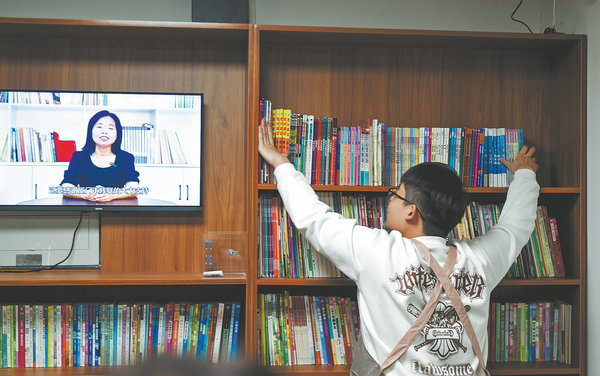Lucky Star shines in Xiamen
Shops designed to provide employment and teach young people with autism transferable skills, Cheng Yuezhu reports.


Luo experimented with different ideas before landing on the shops, but most proved to be failures. She even opened a restaurant, and thought that her students could work as dishwashers, but the facility required too much effort, and was soon running at a heavy loss.
Around five years ago, she thought of setting up a stall to sell donated goods. Her idea was supported by a local park. She wanted to illustrate to students the relationship between buying and selling, and show them they could make a living by selling things.
"When we actually set up the stall, we were shocked by how many things we had to learn. We thought managing one would be a simple task, but it turned out to involve many skills that needed to be developed," she says.
At first, the students had difficulty understanding some of the basic norms of interpersonal interaction. For example, euphemistic ways of refusal, or appropriate social distance.
Luo describes the process as one of constantly finding, facing, and solving problems. She has filled an entire notebook with notes.
Seeing the progress made by the students over the years, she became increasingly certain that running a shop was the solution. Last year, with support from the Xiamen Disabled Persons' Federation and its subsidiary, the Xiamen Disabled Persons' Employment Service Center, the first shop was opened.
Whenever a donation is received, employees collect the goods from the donors' doorstep, and then sort, sanitize, price, and stock them by themselves.
For safety reasons, Luo always does a basic check on the donors in advance, and makes sure the employees go in pairs when picking up packages.
"An important reason this approach works is sustainability. What the students are learning is useful, like navigation, and communicating with others," she says.
"This is unlike the things we used to teach them, like handicrafts. Once they switch to a different place, such a skill might no longer be useful. Now, we teach them transferable skills. We really would like to think further ahead for them."




































